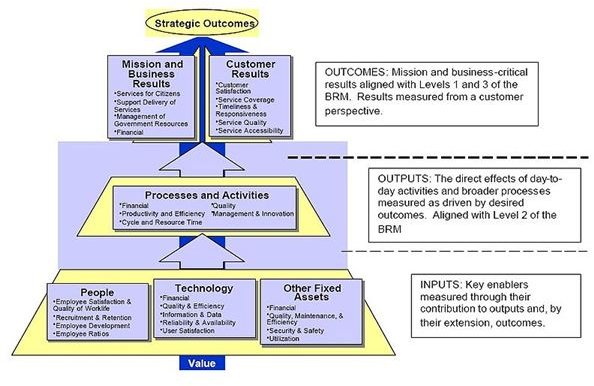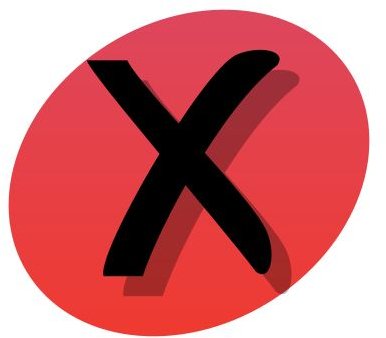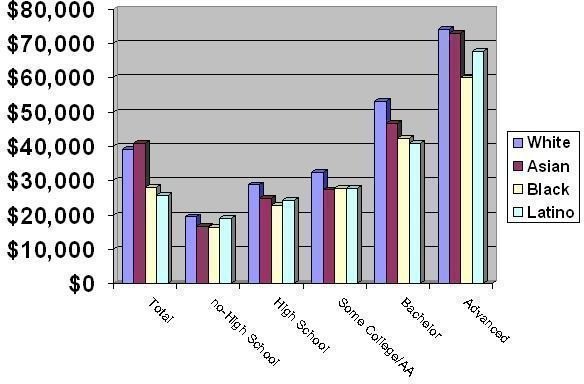In Focus: The Ethical Use of Credit Reports for Hiring Employees
The Credit Report as a Requisite in Hiring an Employee
The ethical use of credit reports for hiring employees has drawn much attention; there is a general pessimism about their use as part of employment requirements. Some job applicants who have not even attempted to submit their applications are immediately cowed by the idea of would-be employers taking interest in their credit reports. Some consider this as an intrusion into their private lives. Others take it as a discriminatory act, while some employees who have been eased out by the results have branded it as retaliatory.
Credit reports mainly reflect an individual’s borrowing and paying habits. It is a known fact that numerous credit reports were turned awry as a result of the recent economic recession. Countless workers found themselves jobless all too suddenly with a lot of credit card and mortgage obligations hanging over their heads.
There is a common misconception among those looking for employment that credit report checks have become a focal point as a basis for employment.
This article looked into the surveys conducted by a global association of Human Resource professionals, known as the Society for Human Resource Management (SHRM), and they revealed noteworthy facts that exemplify the ethical use of credit reports in the hiring of employees.
Results of Statistical Surveys: Who, When & Why Credit Reports are Used

Based on survey results released by the SHRM last January 22, 2010, employers basically make use of credit reports as a basis for determining an applicant’s suitability for a particular job being applied for.
Statistical reports reveal that only 13% of surveyed employers require credit background checks on all job position levels; 47% require credit checks on a selective basis while the remaining 40% do not use credit reports at all.
Of the 47% who require credit report checking for selected job positions, the SHRM survey further disclosed that 91% need the said reports for occupations that require legal and financial conscientiousness. This requirement is applied to those who have direct involvement in handling cash, particularly the banking industry, including positions held by accountants, compliance officers, or technologists directly involved in performing jobs that might render the hiring company vulnerable to legal liabilities.
In most cases, 46% of the job categories that require credit reports are those for executive positions such as chief executive officers, chief finance officers, or chief human resource directors, just to mention a few.
Thirty-four percent (34%) of other job positions that require credit report checks are those that permit access to highly confidential information like salaries and company benefits, medical as well as personal information about company employees, or those who have access to company technologies or formulas.
Some other employers require credit report checks for 30% of job placements requiring strict standards in financial trustworthiness, because the positions to be assumed give the employees access to other people’s monies, properties, or sensitive information.
Some credit reports are used in compliance with state laws, as part of background checks for positions occupied by day care teachers, medical practitioners, or security guards, and they represent 11% of job openings that require credit reports. Other jobs involved with national defense, homeland security, childcare and care for the elderly and health care workers, particularly those with access to drugs, pharmacies, rehabilitation centers, and nursing homes have statistical results ranging from 3% to 5%.
Statistics for Credit Report Results that Influenced Employer’s Decisions

As far as results of the credit reports are concerned, the following outcomes of the credit checks show corresponding statistics about information that largely influenced the employer-respondent’s hiring decisions. These figures will further exemplify how ethical credit report checking is being used in the hiring process:
Outstanding lawsuits or judgments in courts – 64%
Debt Accounts in Process of Collection – 49%
Bankruptcy – 25%
High-debt to Income Proportion – 18%
Foreclosure – 11%
Tax Liens- 10%
Others – 1% to 3%
All these statistical percentages were mostly from businesses with staffing requirement of 500 or more employees, which represented 65% of survey results. Those with less than 500 but not less than 100 reported 28% of the results, and the rest of those surveyed had less than 100 employees.
Please proceed to the next page as we look into the legality of using credit reports as basis for hiring employees.
The Legality of Using Credit Reports for Background Checks
The Fair Credit Reporting Act (FCRA), 15 U.S.C. §1681 is the legal basis for the use of credit reports in the hiring process.
The Fair Credit Reporting Act contains the governing statutes pertaining to the use of consumer reports and the requirements for consumer reporting agencies to present fair and unbiased reports that will serve the needs and purposes of a commercial environment concerning consumer credit, personnel, insurance, and other relevant issues, with complete accuracy, privacy, relevancy, and proper use.
Section 603 specifically includes “for employment purpose” among the valid or acceptable uses or purposes of the consumer credit report defined in this particular section. Hence this passage in the FCRA upholds the rights of business establishments to use consumer credit reports as part of the employment and hiring processes.
Section 603 further allows the employer to take adverse action, which specifically refers to denial of employment or retraction of any employment decisions, if the results will adversely impose possible negative results on the potential employer.
The Conditions Required to Maintain the Ethical Use of Credit Reports for Hiring Employees

Inasmuch as the use of credit reports in the hiring process is a sensitive issue, hiring companies who utilize this instrument are required to observe several conditions:
-
A company should give a clear and concise notice to interested applicants that consumer credit checks are conducted as part of the company’s background investigations for any employees who will be offered possible employment.
-
Said notice must be exhibited in full display within the company’s premises and fully noticeable, to alert the interested applicant about the possibilities of granting the company permission to check on his or her respective credit reports.
-
The company should make it clear to interested applicants that offers for employment are not the same as acceptance for employment. Offers for employment will only mean a continuation of the hiring process, which entail the granting of a written authorization coming from the applicant. Said authorization gives full permission to the company to obtain an employment credit report, the results of which will be used as an additional basis in considering whether to continue or not to continue with the hiring procedures required in the job position.
-
In case of adverse actions on the part of the hiring company, it is important that the employee or applicant should be informed beforehand about the results of the credit check through receipt of a copy of the credit report on which the decision for adverse action had been based. Said notification between the hiring companies and the employees or applicants should be documented in what can be considered as an acceptable “pre-adverse action notice."
-
Any adverse actions to be taken against an employee or an applicant, prompted by the results of the credit check, should be done within five (5) days after the report containing the results of the credit check has been received.
-
The hiring company should make sure that the consumer reporting agency has included in the report the Statement of Rights, which contains the full descriptions of the employee’s rights under FCRA.
-
To preclude potential lawsuits that may arise from charges of acts of discrimination or wrongful termination, the adverse action of the company should be fully documented. Such documentation should cite the job-related or business-related reason and in what aspect the negative results of the credit report would affect the applicant’s or the employee’s ability to perform the task he or she is hired or will be hired to do.
Continue with your reading on page 3 and you will learn some other facts about the credit report used for hiring employees.
Additional Information about the Credit Report for Hiring Purposes
Many job-seekers are unaware that the credit report issued for employment purposes is different in form and content from the credit reports used by financial institutions. It is specifically called Employment Credit Report.
-
Credit score numbers, including the applicant’s age, year of birth, and account numbers are not included in the credit report version for employment, because only the information that has direct relevance to employment or job performance are supplied by the credit-report-issuing agencies.
-
Employers are not allowed to request an individual’s credit score even by remitting a fee.
-
Authorizations for credit report requests granted by employees or applicants in favor of the hiring company have no expiration. This is especially true if the job position held will require periodic updates to determine if the employee concerned maintains his or her suitability for the occupation.
Summary
As a summation, it can be gleaned from the survey results released by the Society for Human Resources that the ethical use of credit reports for hiring employees has been upheld for those who require it. On the other hand, an almost equivalent number of employers and recruiters are non-users of credit report checks.
Furthermore, we can draw a conclusion that credit reports are crucial requirements only if the job position applied for or currently occupied requires high standards of financial and moral trustworthiness. Most companies who implement the credit report requirement among existing employees have had to request permission for credit report checking from all employees in all levels, to preclude accusations of discriminatory acts.
Employers are constrained to exercise due care in the use of credit reports to avoid costly and damaging lawsuits. On the other hand, credit report issuing bureaus and agencies are likewise governed by strict rules and limitations on the information to provide, lest they will be heavily penalized by the Fair Trade Commission. There are guidelines and statutes that govern the implementation of credit report requirements, as assurances for job-seekers and employees alike that their basic rights are protected.
Reference Materials and Images Credit Section
Reference Materials:
- Society for Human Resources. Background checking: Conducting background checks, at https://www.shrm.org/Research/SurveyFindings/Articles/Pages/BackgroundChecking.aspx
- Rosen, L and Bagus, K. Employment Screening Resources: The use of credit reports in employment background screening, at https://www.esrcheck.com/docs/credit_report_whitepaper.pdf
- US.gov, The Fair Credit Reporting Act, at https://www.ftc.gov/os/statutes/031224fcra.pdf
Images from Wikimedia Commons:
